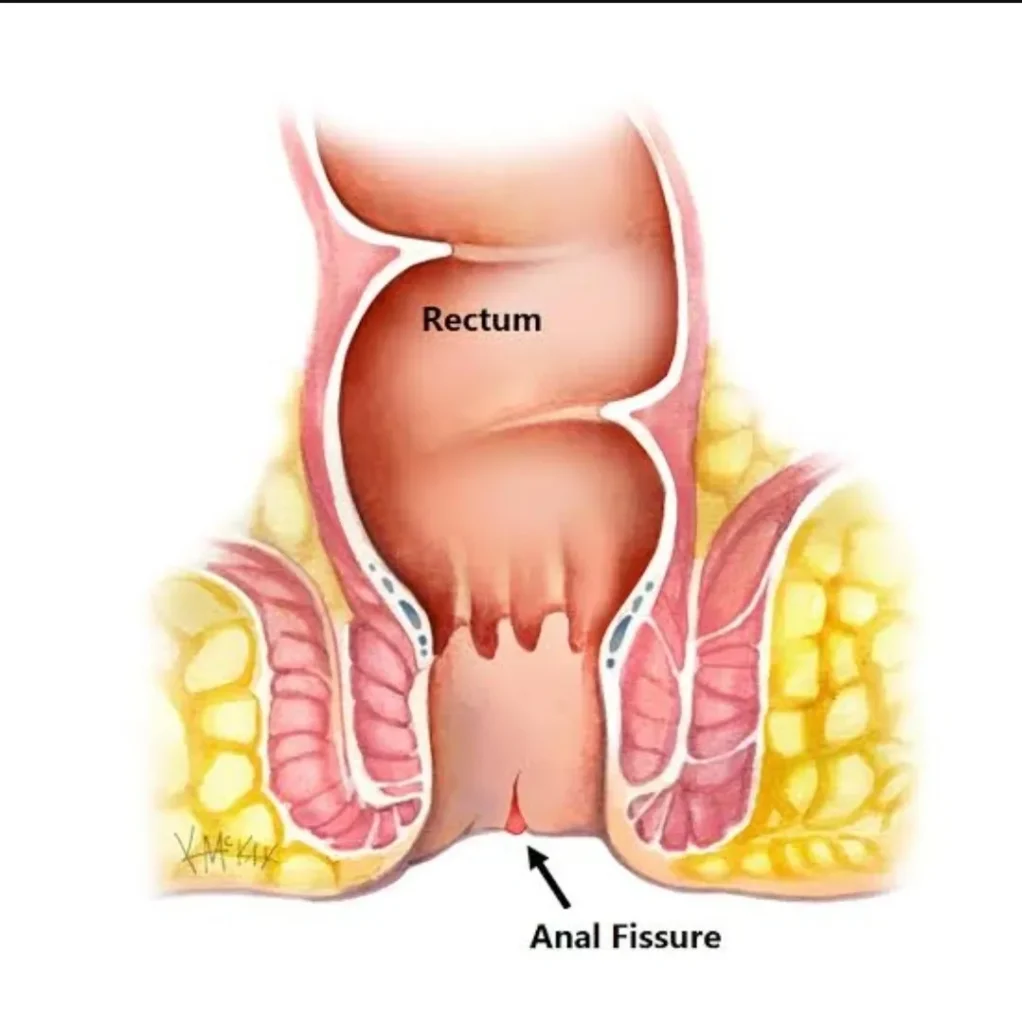
An anal fissure is a break or tear in the mucous membrane of anal canal. Anal fissure may me noticed by severe pain after, during passing stools, blood streaks attached on stools.Anal fissure usually extend from anal opening and are usually located posteriorly at midline.Fisuure depth may be superficial or sometimes down to the underlying sphincter muscle.
Anal fissure symptoms
Typical symptoms of an anal fissure include:
- Pain around the back passage (anus).
- Bleeding when you pass stools (poo).
The pain can be severe and tends to be worse whilst passing stools and for an hour or so after this.
You may also bleed when you pass stools – the blood is typically bright red, in the pan or on the toilet paper. Bleeding from the back passage should always be checked by a doctor.
For some people, the fissure heals within 1-2 weeks or so but it can take much longer. Those that heals within six weeks are known as acute anal fissures whereas a chronic anal fissure has been present for longer than six weeks.
What causes an anal fissure?
Anal fissures are often caused by damage to the back passage (anus). The damage can arise from:
- Constipation
- Chronic diarrhoea
- Pregnancy and childbirth.
- Inflammatory bowel disease ( IBD )
Constipation
Constipation happens if the stools become hard and it becomes harder and/or more painful to poo, or you’re pooing significantly less than usual. Stretching and tearing can occur when a person passes particularly hard stools.
Lots of factors can cause constipation, but among the most common are:
- Not eating enough fibre (roughage).
- Not drinking enough fluids (particularly if you are unwell).
- Losing more fluid than usual (particularly if you are unwell) – due to sweating from a high temperature (fever) – and often eating less.
- Medication – particularly strong painkillers, eg, codeine.
- Medical conditions such as an underachieve thyroid gland
Other causes
Other causes of anal fissure include:
- Previous surgery to the back passage.
- During pregnancy and childbirth. (An anal fissure occurs in about 1 in 10 women during childbirth.)
In a small number of cases, a fissure occurs as part of another condition. For example, as a complication of inflammatory bowel disease such as Crohn’s disease , ulcerative colitis or after a
Sexually transmitted infection such as anal herpes infection
In these situations, other symptoms that are caused by the underlying condition are usually present. These types of fissures are not dealt with in this leaflet.
How is an anal fissure diagnosed?
Your doctor will usually diagnose an anal fissure if there are typical symptoms and by examining the skin around the back passage (anus).
No other tests are usually needed but your doctor may arrange more investigations just to check your gut (bowel) and back passage are otherwise okay.



